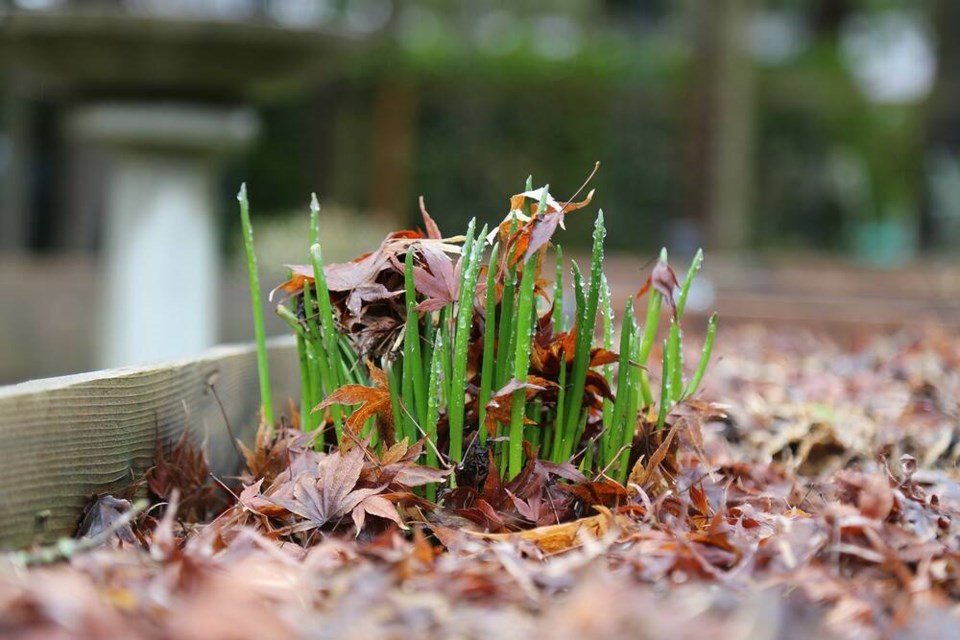Gardening, like parenting, is joyful and largely intuitive.
At this hopeful time of year, while juggling heirloom and native seed-starting ambitions with contemporary wisdom regarding tools and techniques, I am reminded of the challenges and victories of early parenthood. I double down on trust, and defer to nature’s logic.
When our children were tiny and one of them took ill, I would dive through advice blogs and parenting books – growing paralyzed by insecurity. I would bundle up all three babies and drive downtown to see our family doctor. And, despite interruption of the beautiful rhythm of synchronized napping, the visits prescribed essential, unremarkable wisdom.
Our doctor would diagnose the malady, real or imagined, and then ask what I thought should be done. I would tell her what I believed, and then nine times out of 10, she would say something like, “Then that’s what you should do. You are his mum and I am confident that you know him. This is not a life-threatening situation, so follow your heart and your head, and listen to your child. Watch how he responds or doesn’t, and call me if things get worse.”
That advice landed gratefully, and stayed with me always. It helped me become an observant, informed and confident mum. We were lucky. Conservative, common sense non-pharmaceutical treatment of most ailments, within reason of course, and rather old-fashioned thinking that playing outside nearly every day rain or shine – playing in the wormy dirt, eating basic food that we prepared ourselves, and going to bed early – were how things were done.
There were times, of course, when we were indebted to the miracles of modern medicine. But for the most part we deferred happily, though by no means blindly, to nature’s logic.
I am just old enough to remember when things were much simpler, when self-sufficiency and homemaking skills were valued to a much greater degree than they are today. The race for economic wealth and global domination left much in its wake, not the least of which is generations of inherited and traditional knowledge, moreover authentic value of that knowledge.
Thankfully, we are re-realizing the intrinsic worth of self sufficiency, sustainability, intuition and life skills like growing, cooking and preserving food. We are questioning the economic model that relies, for its survival, on our collective belief that we are perpetually inadequate, unaccomplished and incapable. Also, that we need commercial products and expertise-by-subscription to fulfill our inadequacies and make us happy.
We need not believe that our children need sleep meds, teething meds, sit-still meds; that our lawns need weed killer and chemical fertilizer; that our seed-starting pseudo-soil must be sterile; that our tomatoes must be unblemished; and that growing food at home requires a shallow dive into our line of credit.
How did we get by, before post-war modernization brought us better and “the best” ways to do absolutely everything? Observation, intuition and the passing down of traditional knowledge, that’s how.
Food gardening is not difficult, and it most certainly need not be expensive. The recipe is simple, the ingredients are few: seeds, soil biology, worms, water, sunshine, nutrients, optimism and natural law. The methodology is as simple or complex as you make it, but my advice is to start small and trust.
Gardens, like children, thrive in sunshine and rain – along with unconditional love, advocacy, feeding, encouragement, worms (arguably) and rest. They have it in them, and so do we. We know this intuitively. And if we let it, the doing comes naturally.
Laura Marie Neubert is a West Vancouver-based urban permaculture designer. Follow her on Instagram @upfrontandbeautiful, learn more about permaculture by visiting her Upfront & Beautiful website or email your questions to her here.
For a taste of permaculture, watch the video below:



